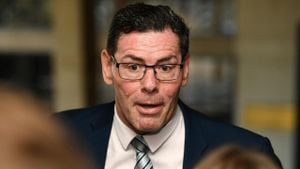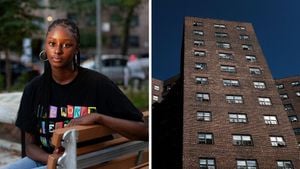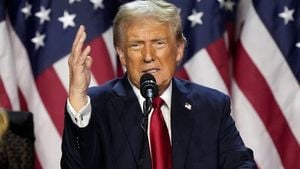Minnesota Governor Tim Walz recently drew parallels between football and politics during his visit to Aliquippa Junior/Senior High School in Pennsylvania. He used the opportunity to connect with students on the football field, emphasizing the importance of teamwork and mutual respect.
Walz, who has experience as a high school football coach, spoke candidly about the often “ugly” nature of politics. He expressed concern about the negative perceptions surrounding politics and the potential disengagement of young voters.
“Politics isn’t so much different than this,” Walz remarked, highlighting how both realms require dedication to a common goal. His assertion reflected his belief in the transformative power of teamwork and collaboration.
He elaborated on the necessity of working together, stating, “It’s about something bigger than themselves.” This perspective is evident from his coaching days, where he led the Mankato West varsity football team to success, shifting its reputation from perennial losers to state champions during the late 1990s.
Walz urged the students to understand the significance of setting future goals and striving for them. He noted how sports can teach valuable lessons of dignity and humility, including how to handle losses with grace.
During his speech, Walz described intense moments typical of the fourth quarter of football games, where teamwork becomes pivotal. “Somebody has to step up,” he said, reinforcing the idea of trust among teammates as fundamental to achieving collective success.
He compared this idea to society, stating, “Our country’s not all too different.” This comparison served to remind the young audience of the importance of unity and shared values, encouraging them to recognize their common ground rather than divisions.
“Our neighbors wanna do what’s right and, the more we figure out we are all in this together, the more we will accomplish,” Walz emphasized. This sentiment resonates with many who believe collaboration leads to progress, both on the field and within the political arena.
Walz's comments have garnered attention and praise on social media, with many highlighting his eloquence and ability to connect political ideals with the emotional aspects of American football culture. One user commended him as "a stunning speaker and communicator," appreciating the refreshing link he made between sportsmanship and civic engagement.
This approach aligns with broader campaign strategies aimed at energizing grassroots support, especially among younger demographics. Many believe this strategy will resonate well, particularly within swing states like Pennsylvania.
Walz and Vice President Kamala Harris’s campaign aims to redefine political discourse, making it more relatable through personal experiences and shared cultural touchstones like football. By utilizing sports analogies, they’re attempting to convey positive and hopeful messages amid the often contentious political climate.
The governor's ability to draw analogies between football and politics not only reinforces his credentials as both a leader and educator but also highlights the potential of revisiting political discussions by connecting them to everyday experiences. His background as a coach lends authenticity to this narrative.
Overall, Walz's speech serves as more than just political rhetoric; it's meant to inspire engagement. It reflects his commitment to fostering a more inclusive and cooperative political environment.
This is significant not only for his vice presidential campaign alongside Harris but also for encouraging young Americans to stay involved. Walz's message encourages listening to and learning from the experiences of others, applying valuable life lessons from the playing field to the broader scope of community and governance.
With voters increasingly wary of the political climate, using familiar cultural references might create pathways for more constructive conversations about civic responsibility and engagement.
Walz and Harris plan to continue this strategy throughout their campaign. The governor’s speech points to the potential success of rekindling interest among young voters by applying lessons learned from sports.



